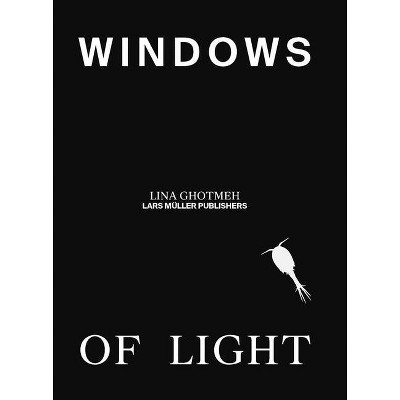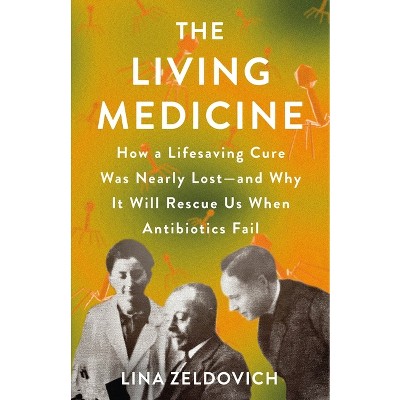Sponsored

Maraña - by Lina Pinto-García (Hardcover)
$115.00
In Stock
Eligible for registries and wish lists
Sponsored
About this item
Highlights
- Delves into the relationship between war and disease, focusing on Colombian armed conflict and the skin disease known as cutaneous leishmaniasis.
- About the Author: Lina Pinto-García is a postdoctoral fellow in the Connected Minds program at York University in Canada.
- 240 Pages
- Medical, Infectious Diseases
Description
About the Book
"Delves into the relationship between war and disease, focusing on Colombian armed conflict and the skin disease known as cutaneous leishmaniasis. Leishmaniasis is transmitted through the bite of female sandflies. The most common manifestation, cutaneous leishmaniasis, is neither deadly nor contagious: it affects the skin by producing lesions of varying size and shape. In Colombia, the insect vector of the disease is native to the same forested environments that have served as the main stage for one of the longest and most violent civil wars in Latin American history. As a result, the populations most affected by leishmaniasis in Colombia are members of the state army and non-state armed groups. Lina Pinto-Garcâia explores how leishmaniasis and the armed conflict are inextricably connected and mutually reinforcing. Her title, Maraäna, means "tangle" in Spanish but is also commonly used in Colombia to name the entangled greenery, braided lianas, and dense foliage that characterize the tropical forests where leishmaniasis typically occurs. Pinto-Garcâia argues that leishmaniasis and the war are not merely linked, but enmaraänadas to each other through narratives, technologies, and practices produced by the state, medicine, biomedical research, and the armed conflict itself. She also uses the concept of desenmaraänados (disentangled) to discuss how other attachments between leishmaniasis and society could be formed through different scientific programs, technological designs, healthcare practices, regulations, and social and cultural processes capable of challenging violence, suffering, and inequality. All told, Maraäna is a passionate study of how war has shaped the production of scientific knowledge about leishmaniasis and access to its treatments in Colombia"--Book Synopsis
Delves into the relationship between war and disease, focusing on Colombian armed conflict and the skin disease known as cutaneous leishmaniasis. Cutaneous leishmaniasis, transmitted by female sandflies, produces skin lesions of varying size and shape. In Colombia, the insect vector of the disease is native to the same forested environments that have served as the main stage for one of the longest and most violent wars in Latin American history. As a result, the populations most affected by leishmaniasis in Colombia are members of the state army and nonstate armed groups. Lina Pinto-García explores how leishmaniasis and the armed conflict are inextricably connected and mutually reinforcing. Maraña means "tangle" in Spanish but is also commonly used in Colombia to name the entangled greenery, braided lianas, and dense foliage that characterize the tropical forests where leishmaniasis transmission typically occurs. Pinto-García argues that leishmaniasis and the war are not merely linked but enmarañadas to each other through narratives, technologies, and practices produced by the state, medicine, biomedical research, and the armed conflict itself. All told, Maraña is a passionate study of how war has shaped the production of scientific knowledge about leishmaniasis and access to its treatments in Colombia.Review Quotes
"Tracing leishmaniasis is an elusive task, even if the peace accords signed in 2016 that ended the forty-year Colombian armed conflict made it possible for Pinto-García to undertake this extraordinary work. The jungle-like maraña we are guided through is a complex ethnography of a disease, of sick bodies, of a fragile peace process, and of the painful politics of the military-pharmaceutical complex in our contemporary world. But we are not condemned to get lost in this maraña. Pulling these links can also open a path towards the possibility of another world."--Olga Restrepo Forero, Universidad Nacional de Colombia
"Maraña is a work of remarkable methodological ambition and incisive interdisciplinary imagination. This tale of microscopic Leishmania parasites and the literal armies raised against them over the course of the Colombian armed conflict and its aftermath is not only a compelling story of the politics of knowledge and healing, but a conceptual account of the ways that war is made in the violence of cure. This is a book for a world in which war, disease, toxicity, and inequality can only be understood through their inescapable entanglement with one another. And just as crucially, it is a book that reveals those entanglements as places where peace, justice, and human and more-than-human flourishing may yet take root."--Kenneth T. MacLeish, author of "Making War at Fort Hood: Life and Uncertainty in a Military Community"
"Maraña, which means entanglement but also jungle, presents a very original examination of the insidiousness of war, which includes critters, the state, and persistent ulcers. Considered a guerrilla disease, leishmaniasis has shaped the army, just as the war has shaped the ways in which this disease is spread, experienced, treated, and studied. Pinto-García reveals the maraña to prompt the healing of suffering bodies."--Claudia Leal, author of "Landscapes of Freedom: Building a Postemancipation Society in the Rainforests of Western Colombia"
"War exacts many obvious costs upon bodies and ecologies: grave injuries, toxic waste, psychological trauma. In Maraña, Pinto-García calls our attention to a slower and more elusive, yet no less consequential, cost of war. Her gripping account of how cutaneous leishmaniasis came to be the signature pathology of Colombia's protracted armed conflict blends a keen eye for scientific detail with an incisive and meticulous critique of militarized health care. A major contribution to environmental and medical anthropology, this book illustrates how relations of care for people and landscapes are shaped by economies of violence--and how it might be otherwise."--Alex M. Nading, author of "Mosquito Trails: Ecology, Health, and the Politics of Entanglement"
"Based on a scrupulous ethnography conducted in the Colombian jungle, Pinto-García thoroughly demonstrates how leishmaniasis is both socially produced by the armed conflict and metaphorically constructed through the state's biopolitics. At the interface between medicine, epidemiology, and ecology, she offers a critical anthropology of the complex interactions between warfare and disease."--Didier Fassin, author of "The Worlds of Public Health: Anthropological Excursions"
"Pinto-García negotiated remarkable access to both the Colombian Army and FARC guerrilla members. She deploys what she learned to tell multifaceted stories about the complex entanglements (or maraña) of war, disease, medicine, and violence, tracing the reciprocal interactions of leishmaniasis and its treatments amid a war that determined who fell sick and who could access care. Maraña offers poignant testimony of the suffering, stigma, and stigmata that endure long after formal hostilities cease."--David S. Jones, author of "Broken Hearts: The Tangled History of Cardiac Care"
"Pinto-García's Maraña is a milestone in new anthropologies of infectious diseases. No other monograph brings together the ethnographic study of war and zoonosis in such thought-provoking, boundary-breaking tension."--Christos Lynteris, author of "Visual Plague: The Emergence of Epidemic Photography"
"This outstanding book constitutes a pathbreaking ethnography rooted in scientific evidence, technological studies, and medical anthropology, through which Pinto-García underscores and unwraps the maraña, or the entanglement, of the armed conflict with leishmaniasis in Colombia. She reveals how in this violent context, which takes place mainly in the tropical jungle, leishmaniasis has been constructed as a war or guerrilla disease. As the testimonies of soldiers, guerrillas, nurses, scientists, and local residents are unraveled, it becomes clear that the stigmatization of the disease has led to a biomedical war regime that prioritizes war over public health. The author leaves readers with the question of how to disentangle leishmaniasis and war, and how to consider a non-pharmaceutical solution to a public health problem."--María Clemencia Ramírez, author of "Between the Guerrillas and the State: The Cocalero Movement, Citizenship, and Identity in the Colombian Amazon"
About the Author
Lina Pinto-García is a postdoctoral fellow in the Connected Minds program at York University in Canada. She is also a research affiliate of the School of Anthropology and Museum Ethnography at the University of Oxford.Dimensions (Overall): 9.13 Inches (H) x 6.14 Inches (W) x .79 Inches (D)
Weight: .92 Pounds
Suggested Age: 22 Years and Up
Number of Pages: 240
Genre: Medical
Sub-Genre: Infectious Diseases
Publisher: University of Chicago Press
Format: Hardcover
Author: Lina Pinto-García
Language: English
Street Date: April 29, 2025
TCIN: 1006101894
UPC: 9780226839325
Item Number (DPCI): 247-50-2892
Origin: Made in the USA or Imported
If the item details aren’t accurate or complete, we want to know about it.
Shipping details
Estimated ship dimensions: 0.79 inches length x 6.14 inches width x 9.13 inches height
Estimated ship weight: 0.92 pounds
We regret that this item cannot be shipped to PO Boxes.
This item cannot be shipped to the following locations: American Samoa (see also separate entry under AS), Guam (see also separate entry under GU), Northern Mariana Islands, Puerto Rico (see also separate entry under PR), United States Minor Outlying Islands, Virgin Islands, U.S., APO/FPO
Return details
This item can be returned to any Target store or Target.com.
This item must be returned within 90 days of the date it was purchased in store, shipped, delivered by a Shipt shopper, or made ready for pickup.
See the return policy for complete information.











